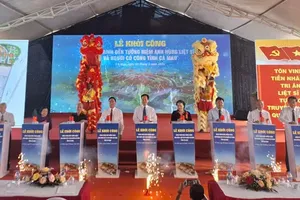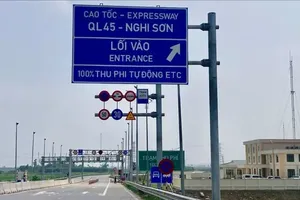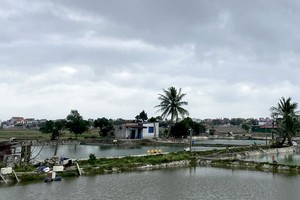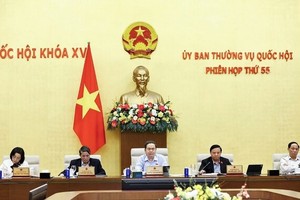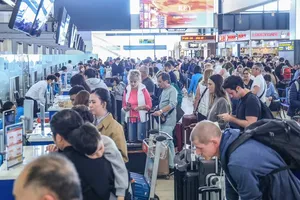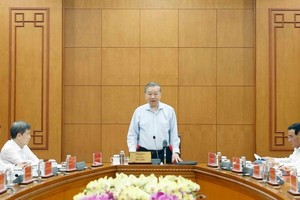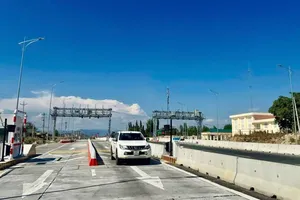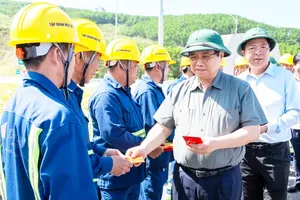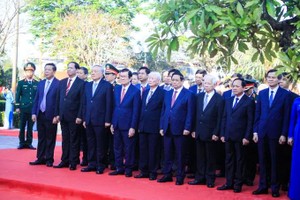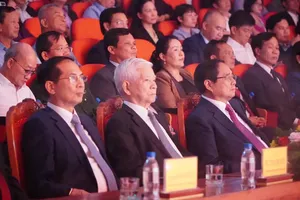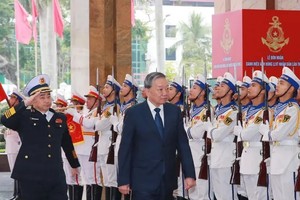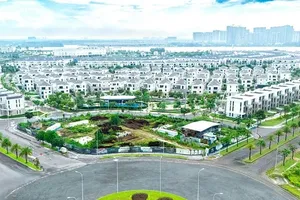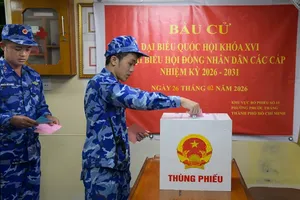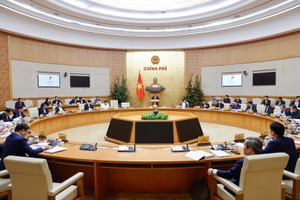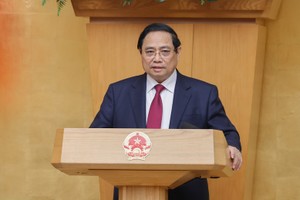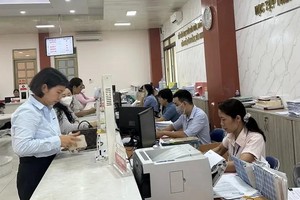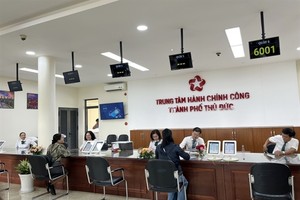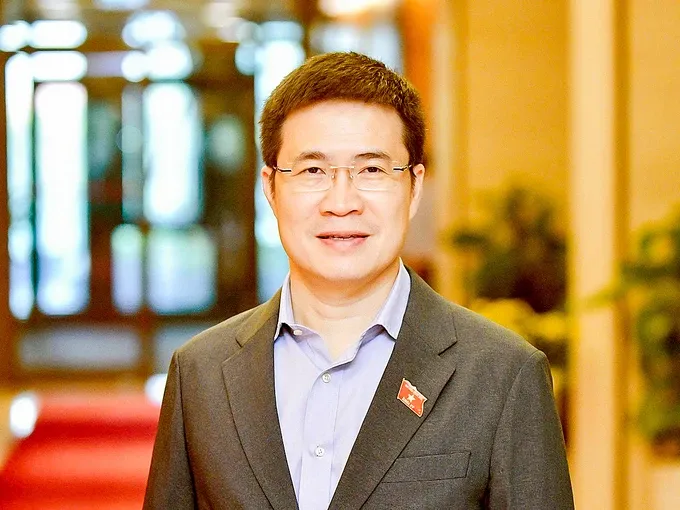
Firstly, NA Delegate Hoang Minh Hieu (above picture) explained the extensive legislative work that is expected at the 8th session of the National Assembly (NA), which is the largest workload not only in this tenure but also in the nearly 80 years of the NA’s history.
To handle such a massive workload, the NA, the Government, and relevant agencies have been actively coordinating and preparing in accordance with the procedures stipulated by the Law on the Promulgation of Legal Documents and related regulations.
Essentially, all draft laws and resolutions have been scrutinized or received, amended by the NA’s agencies; sent to the NA delegations for comments; and submitted to the Standing Committee of the NA for consideration.
Notably, during this process, the NA’s Standing Committee has organized conferences of specialized NA deputies well in advance to discuss some of the draft laws to be passed. A new feature is that the conference discussed not only draft laws following the two-session process but also those to be passed in one session. This has enabled the participation of specialized NA deputies in these draft laws, contributing to further improving their content.
Delegate Hoang Minh Hieu emphasized the spirit of innovation in lawmaking, set forth by National Assembly Chairman Tran Thanh Man, during the process of scrutiny, receipt, and amendment of draft laws and resolutions to be submitted to the 8th session.
This involves enhancing professionalism and quality in legislative work; clearly defining the content to be regulated in laws and the content to be regulated in guiding documents; and avoiding the legalization of content that falls within the scope of decrees and circulars.
This ensures that the content of draft laws and resolutions of the NA is enacted within its authority granted by the Constitution and law; reflects the correct position, role, functions, duties, and powers of the NA; ensures both the long-term stability of laws and the flexibility in amending and supplementing content that falls within the scope of regulations of sub-legal documents.
Remarkably, in the NA’s 8th session, the Government will submit for approval two bills using the “one law to amend many laws” approach in order to address shortcomings and bottlenecks in the finance and economy sectors to promote socio-economic development:
The Law amending and supplementing a number of articles of the Securities Law, Accounting Law, Independent Audit Law, State Budget Law, Law on Management and Use of Public Property, Tax Law, and National Reserve Law;
The Law amending and supplementing a number of articles of the Planning Law, Investment Law, Law on Public-Private Partnership Investment, and Bidding Law.
Delegate Hoang Minh Hieu explained the necessity of using this legislative technique in Vietnam, just like in other nations, to address one or more specific issues that require timely enactment to meet the demands of practice.
The advantages of this technique lie in its time-saving feature and its ability to comprehensively consider related policies, thereby addressing policy issues more comprehensively and ensuring consistency as well as harmony among related legal provisions, avoiding overlaps and contradictions.
However, the disadvantages come from the difficulties in assessing the impact; possible omissions of important issues when considering amendments owing to a reduction of discussion depth. What is more, this method might make it challenging to search for and retrieve documents, affecting people's access to and application of the law. Therefore, this method should only be applied in limited cases.
Vietnam's Law on the Promulgation of Legal Documents also has specific provisions on the conditions for applying the “one law to amend many laws” method. The consideration and passage of the above bills require careful and thorough consideration, as well as a comprehensive assessment of related issues to find the most suitable amendments.
Finally, Delegate Hoang Minh Hieu voiced the issues that he is particularly interested in the 8th session of the NA for socio-economic growth of the country, including the North-South high-speed railway construction project, National Target Program for Cultural Development, the decision on establishing the city of Hue as a centrally-governed one, and most importantly the draft laws and resolutions in the economic field. This is a major content area in the 32 legislative items of this session, including important laws that are of great interest to the business community and local authorities.
